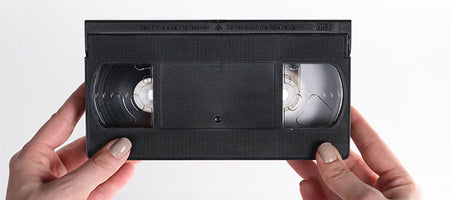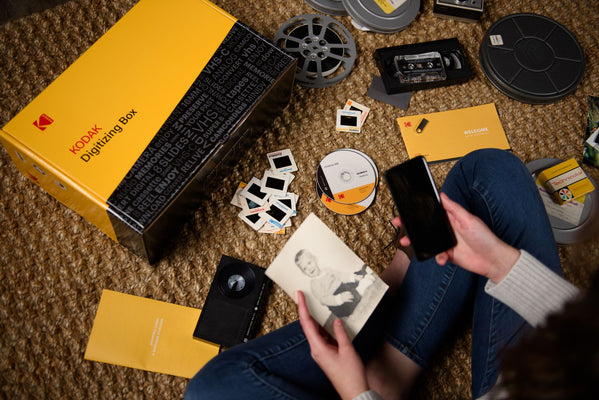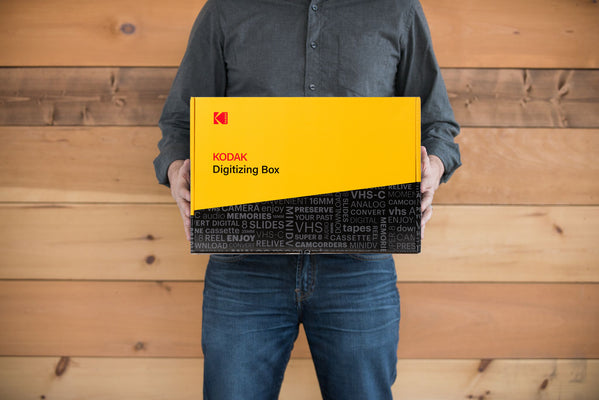As a new year kicks off, it’s important to remember how far we’ve come, technologically speaking, in our storage capacity options.
Floppy discs? Buh-bye!
Limited CD storage? See ya later!
1 GB flash drives? Outta here!
With so many ways to digitize your memories – DVD, USB drive or cloud download – we understand that the decision can be tough. How do you know which method is best for you?
Don’t worry. Let us help you break it down.
DVD
There’s really nothing new about the DVD. First released to the masses in the late 90s, it quickly became the go-to format for movies and video (sorry VHS). And although it’s seen a decline in usage over the last decade, it’s still a viable option for anyone looking to digitally store their old family memories.
Pros
Cons
Thumb drive
When the much sleeker thumb drive hit the tech scene in the new millennium, replacing the 3 1/2 inch floppy, people were amazed at how much memory could be stored in such a small USB drive. Fast forward a decade and the thumb drive is even smaller and loaded with more GB memory (in some cases TB) than ever before.
Pros
- Portability – the thumb drive was a whole new revolution in memory storage portability. After all, it’s called a thumb drive for a reason.
- Increased storage – when first released, the thumb drive didn’t offer a substantial amount of storage capacity, at least not by today’s standards. Now, the largest-capacity thumb/USB drives offer up to 2 TB or memory. Wow.
- Ease of use – There’s not much of a learning curve when it comes to a thumb drive. It’s simple plug and play.
- Security – They may look one-dimensional, but most thumb drives now come equipped with various security protection functionality.
- Speed – Thumb drives (on average) are pretty fast and can transfer files even without Internet connection.
Cons
- Physicality – A thumb drive may be small and portable, but it’s still a physical object. One that, if you’re not careful with, you just may lose.
- Malware risk – While it’s hard to hijack a thumb drive, it can be susceptible to a malware attack if it’s plugged in to a computer that’s been infected with the virus.
- Corrupt files – Not properly ejecting a thumb drive or leaving it plugged in for extended periods of time can put your files at risk.
Digital download (Cloud storage)
In a world where streaming services reign king, it only made sense to have an application where our personal and professional files live too. Store them. Share them. Do whatever you want with them. The cloud is constant connection.
Pros
- Lifespan – compared to both DVDs and thumb drives, the Cloud offers storage immortality. No more obsolete hardware.
- Convenience – access any file anytime, anywhere.
- Speed – with a fast internet connection, digital downloads can be accessed quickly, effortlessly.
- Sharable – share your files with friends, family, coworkers – you name it – without the hassle of needing to send them a physical device.
Cons
- Security – with hackers reaching all-time highs in the last several years, keeping your files secure has become a priority. Just be careful because digital downloads through the cloud can be susceptible to hacking.
- Connectivity – As long as you’ve got an active internet connection, you’re good to go. But when you don’t … you don’t.
- Speed – Also a pro, your download speed is only as good as your server and internet speed will allow it.
Ultimately, when it comes to storage, there is no right or wrong option. What works best for someone else may not work as well for you and vice versa. So, find which method piles up more tallies in the pro column for you and happy storing!













